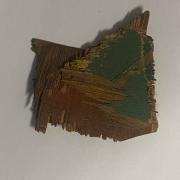Just like a car, our bodies can benefit from a regular check over to ensure all is running smoothly and our engine isn’t about to seize up
“The truth is, many of us pay more attention to ensuring our car is roadworthy than to ourselves,” comments Dr Sally Norton, leading Health Expert, NHS Weight Loss Surgeon & Consultant and founder of www.vavistalife.com.
“When our body is trying to tell us something, it’s often easier (and sometimes less embarrassing) to ignore it, especially when we’re busy. Often it’s nothing to worry about.
“But in the same way that an annoying rattle in your car can signal a mechanical fault, the longer you put off having it seen to, the more you risk storing up trouble.”
So what options are available and how can we give ourselves a health MOT?
On the NHS
An NHS Health Check is available for people aged 40-74 without a pre-existing condition and looks at circulatory and vascular health. Each year it is seen as saving 650 lives and preventing 1,600 heart attacks and strokes and detecting at least 20,000 cases of type 2 diabetes or kidney disease earlier, so is well worth having. Over 40s can expect to be invited for one every five years but if you haven’t had a letter it is worth asking your GP.
Privately
Private-health screening is another option and enables you to be screened for anything you are concerned about, whenever and however often you want.
“We offer a number of health screening programs, priced between £200-500 that can be tailored to meet specific needs,” explains Lynn Orrin, hospital manager at Spencer Private Hospitals based in Margate and Ashford (www.spencerprivatehospitals.com).
“These include assessments for heart disease, diabetes, hypertension and cancers and all findings are covered in a report along with any necessary health guidance with a letter also going to the patient’s consultant and GP with any recommendations.
“If someone does have a health problem then early intervention can be incredibly beneficial whilst if they don’t, an assessment can provide valuable reassurance.”
From a pharmacy
Increasingly, there are various health tests available over the counter, as Boots pharmacist Tom Kallis explains.
“Boots Pharmaceuticals have a range of home-testing kits, ranging from pregnancy through to checking up on cholesterol levels. Our ovulation test is more than 99 per cent accurate and our home cholesterol test kit gives an indication as to whether or not you should see your doctor for a more accurate result. These kits are safe to buy online at boots.com and our trained pharmacists can talk through the range and how best to use them.”
DIY
Although we may choose to ignore warning signs and symptoms, we are all experts on our own bodies and wellbeing to some extent. Dr Sally Norton advises on some basic but essential checks you can carry out at home.
Breast check
One in seven women will get breast cancer in their lifetime so a monthly check is important. Do this once a month at roughly the same time; when having a bath or a shower can work best.
Soap up your hands and feel for any lumps or bumps, then check in the mirror with hands above your head and on your hips to look for anything unusual. Avoid doing it when you have a period, as breasts can be lumpier at this time.
Testicles check
Once a month when you’re in the shower gently roll each one between fingers and thumb and if you find something strange, don’t stew, go straight to your doctor. More than 96 per cent of men with testicular cancer will be cured if the condition is picked up and treated promptly.
Weight and waist check
Piling on the pounds increases the risk of conditions such as obesity, type 2 diabetes, heart disease and even some cancers.
If your waist measurement overtakes your hip measurement, it’s time to get support to change habits so you can get the weight off and avoid or reduce related health risk.
General
Whether it’s your skin, eyes or ears, your energy levels, loo habits or any unusual pains, be alert for any changes or warning signs, particularly as you get older: 50 may be the new 40, but only as long as you get the health maintenance that you need. w









![The torchlit Wassail procession makes its way to the New Ash Green Community orchard [Photo courtesy of New Ash Green Woodlands Group]](/resources/images/128x89/1x/17558355.jpg)
![The torchlit Wassail procession makes its way to the New Ash Green Community orchard [Photo courtesy of New Ash Green Woodlands Group]](/resources/images/180x180/1x/17558355.jpg)
















